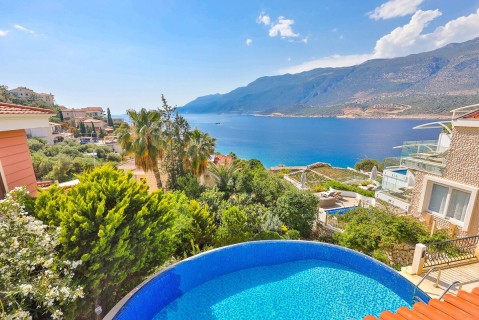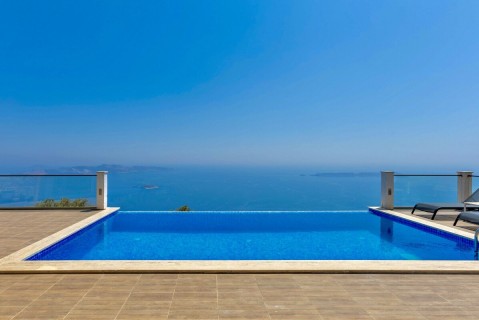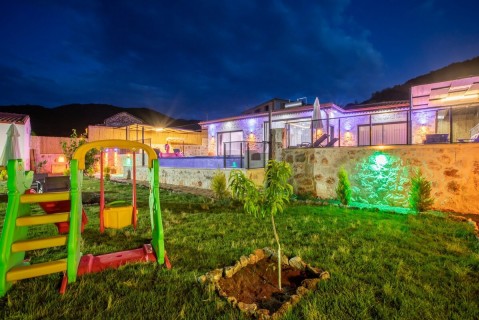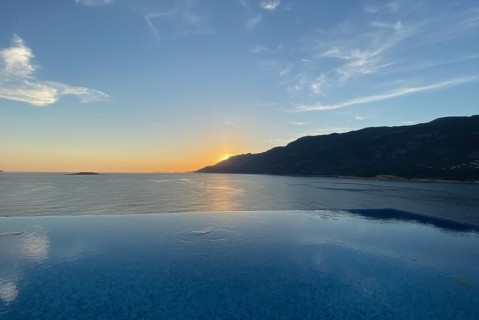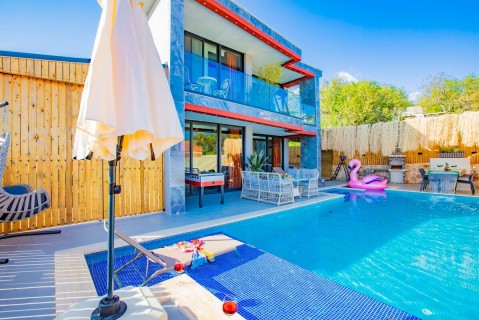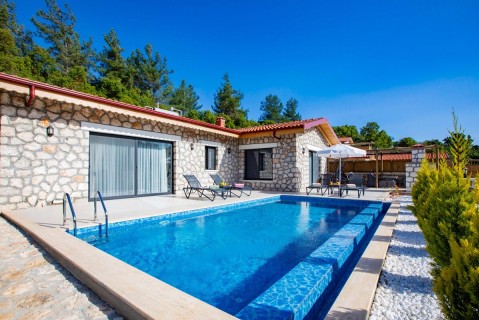Kaş
Kaş
Kas is the last county town located on the south-west cost of Antalya. Antiquity name of Kas was Antiphellos (facing Phellos). As written on ancient sources; Antiphellos means “the extension of Phellos on sea” or the “coast of Phellos (stony place)”. Antiphellos is now a village located on the north of Kas and called Cukurbag. Till near future Kas was a small fishing town and a seaport. Within last years as tourism quickens the town progression, it became a tranquil resting place for holidaymakers and tourists. On the west tongue of the town lays a Hellenistic theatre which is the most important antic ruin found around. Late age church which now serves as a mosque, antic stone grave which still exists and lies on the intersection of narrow streets of Kas, temple ruins on the way to antic theatre and the grave room carved inside a granite rock above the antic theatre are the most important places to be seen during your stay in Kas. The area which is famous with its magnificent bays, stunning underwater beauties, wonderful diving points and ancient shipwrecks has become one of the world’s important diving centers.
The most remarkable ancient Egypt shipwreck dated to 14 BC is found in Uluburun which is situated between Kas and Kekova. Uluburun is found to be one of the worlds most significant and a rare findings of underwater archaeology. Its route has been identified by archeologists after years by impatient studies.
Kas also stands as a good and esteemed example for protecting the traditional village life. On the east of Kas there is an extinct and heavenly city called Theimussa which strikes many people’s attention with its tombs rather than the ruins of giant structures. Heading to south after the 18th km of Kas-Demre road you can reach to Theimussa where one can view the most impressive spectacle. While approached from sea to this ancient village, two islets form a triple entrance called “Ucagiz” in Turkish. Antique city’s entrance gate still stands on a street of the Ucagiz Village. Just like in old ages, Theimussa is still a port today visited by many yatches for headfast and as a holding bay.
-
2024 Updated PricesInfinity Pool
-
2024 Prices Updated
-
2024 Prices is Updated
-
2024 Updated Prices
-
2024 Updated Prices
-
2024 Prices is Updated
-
Prices for 2024 Updated
-
Prices for the year 2024 have been updated
-
Prices for 2024 Updated
-
2024 Updated Prices
-
2024 Updated Prices
-
2024 Updated Prices


